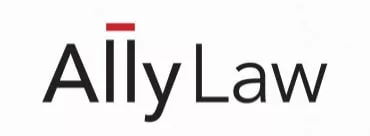Hong Kong, 10 November 2021: A landmark Court of Final Appeal judgment has provided welcome clarity on the question of prosecutions for unlawful assembly and rioting, ruling that the doctrine of "joint enterprise" does not apply but stressing that anyone involved - whether directly or indirectly - in such activities could face criminal liability to the same extent as principal offenders.
The judgment has repercussions for a significant number of forthcoming cases arising from Hong Kong's 2019 protests, which saw more than 10,200 arrests. It means prosecutors will need to be more focused when identifying particular individuals and specific criminal acts rather than relying on a broad brush approach.
In reaching their decision, the CFA judges noted that unlawful assembly and rioting are participatory in nature. "The defendant must be shown not just to have been acting alone but to have taken part in the unlawful or riotous assembly, acting together with others so assembled, being aware of their related conduct and with the intention of so taking part, ie, with a participatory intent."
The judges concluded that a defendant who is not present at the scene of an unlawful assembly or riot cannot be found guilty as a principal offender because "taking part" in the criminal assembly is a centrally important element of these offences. The requirement to be present cannot be overridden by the doctrine of joint enterprise. (This is the legal principle whereby a person can be jointly convicted of the crime of another even if they did not commit the relevant act. It works on the basis that if two or more individuals embark on a crime together, they share culpability whatever their role.)
Further, the CFA ruled that the "basic" form of joint enterprise is not applicable to the offences of unlawful assembly and riot even if the defendant was present at the scene, since this alone would not satisfy the central element of "taking part" in the criminal assembly.
However, the judges emphasised that culpable conduct of both present and absent defendants who promote, encourage or act in furtherance of a criminal assembly is covered by secondary and inchoate liability offences and punishable to the same extent as principal offenders. This includes such as acts as masterminding or supervising an unlawful assembly or riot; providing backup support, for example collecting bricks, petrol bombs or other weapons, or supplying protective equipment; by giving encouragement to others; or by acting as a lookout.
The CFA held that mere presence at the scene of an unlawful or riotous assembly without more does not give rise to criminal liability. But the judges stressed: "That is not to say that the bar is set high. It does not take a great deal of activity on the defendant's part to move the case from the 'mere presence' to the 'encouragement' category." The CFA also held that the "extended" form of joint enterprise could be used to fix participants with liability for more serious offences if matters escalated as they were executing their "joint plan".
The historic ruling was delivered after the CFA considered two appeals that raised overlapping issues concerning the offences of unlawful assembly and riot under sections 18 and 19 of the Public Order Ordinance.
In the first, appellant Lo Kin Man had been convicted of taking part in a riot in Mongkok in February 2016 and his appeal was subsequently dismissed by the Court of Appeal. The CFA held that that the indictment of Lo was defective - the trial judge "erroneously considered joint enterprise applicable" - but there was no miscarriage of justice given the ample evidence for the jury to be satisfied of his guilt beyond reasonable doubt.
In the second, appellant Tong Wai Hung and two others had been acquitted by the District Court in the first case of alleged rioting arising from the 2019 protests. That led Secretary for Justice Teresa Cheng, without seeking a reversal of the acquittals, to ask the Court of Appeal for clarification on the application of joint enterprise. The CA held that joint enterprise was applicable to the offences of unlawful assembly and riot and that a defendant could be convicted even if not present at the scene. Tong pursued the case to the CFA which, as we have seen, reversed the CA's ruling.
In closing, it is worth highlighting again Hong Kong's unique system of having an overseas non-permanent judge - in this case, Lord Jonathan Sumption from the UK - sit as part of the CFA's five-strong panel, thus bringing additional experience and an international outlook to proceedings. It is reasonable to assert that this CFA judgment underscores the continuing independence and excellence of Hong Kong's Judiciary.
Previously published on 10 November 2021.
The content of this article is intended to provide a general guide to the subject matter. Specialist advice should be sought about your specific circumstances.

